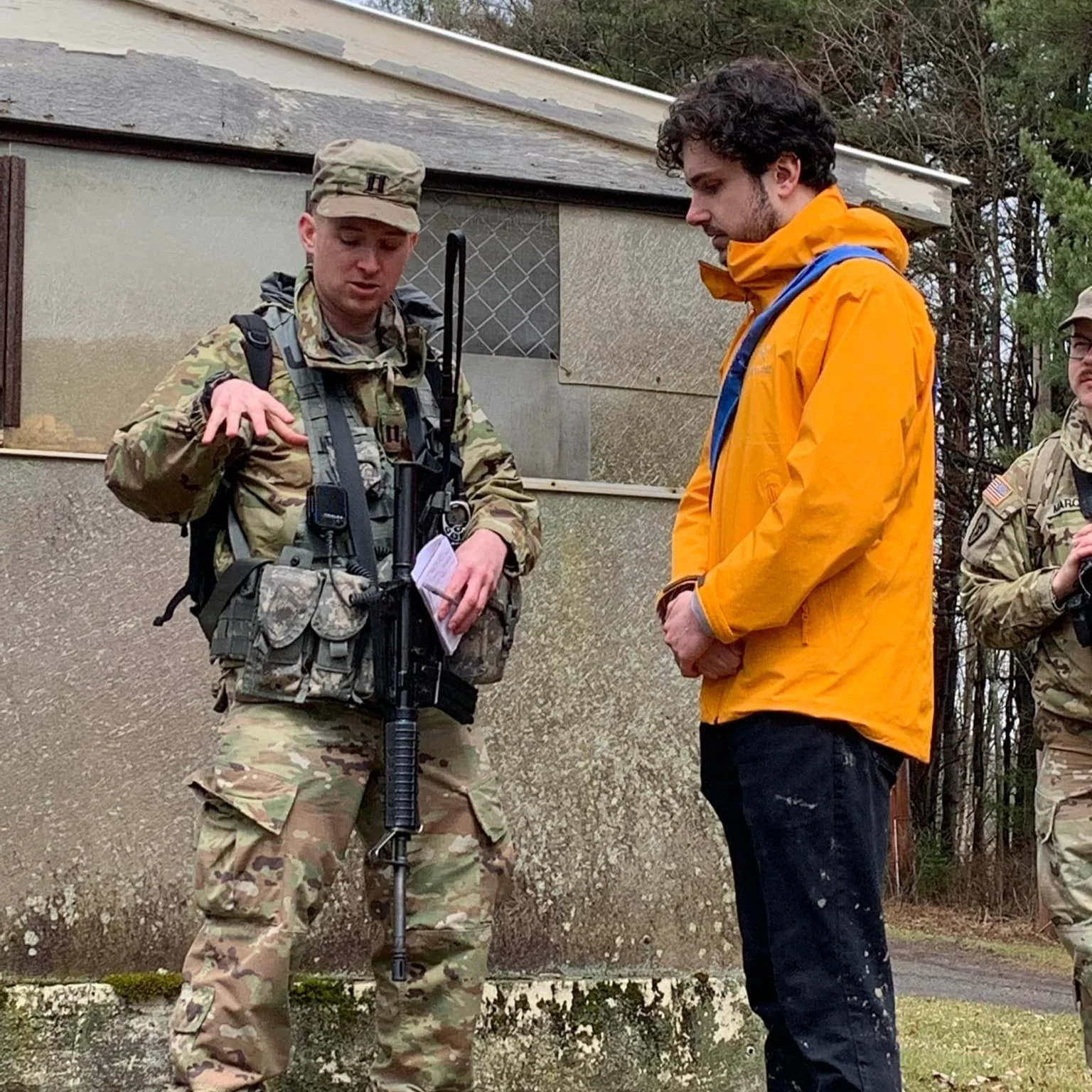This Spring, the Cooperstown Graduate Program continued its seven-year partnership with the 403rd Civil Affairs Battalion to guide reservists through exercises on cultural property identification and protection in combat zones. Students in Dr. Cynthia Falk’s Culture and Collection course developed exercises to instruct soldiers on best practices for identifying and handling objects, as well as working with people from cultures outside our own.
Civil Affair Reservists play Thingamajig!, a card game similar to Taboo, during the classroom exercises.
On April 8th, Dr. Falk and graduate students Nicholas Del Duca ’22, David Gain ’22, Jarrett Hill ’23, and Katherine Novko ’23 began the training weekend with lectures and classroom exercises centered around the importance of preserving cultural property, a topic that has once again risen to the fore in light of current atrocities in Ukraine. Student-developed games like Thingamajig! allowed Civil Affairs reservists to consider how objects—both commonplace and revered—convey shared cultural ideas; by protecting artifacts, soldiers demonstrate a commitment to the ideals and practices of the people with whom they work in foreign locations. Additionally, reservists learned how to handle objects, pack them safely, and fill out accession forms for various items in the Cooperstown Graduate Program’s Teaching Collection.
The knowledge gained by reservists during these classroom exercises was put to the test on April 9th, when Dr. Falk and student volunteers organized a mock training scenario. Mediating between two towns with a long history of animosity, reservists successfully delivered supplies to the ailing “Falkcind” from neighboring “Blulago.” They additionally identified and facilitated the return of looted items of cultural importance to the town.
“Mayor of Blulago,” August Stromberger ‘23, speaks to a Civil Affairs Reservist about the return of his town’s cultural property.
Students developed the scenario and acted as the inhabitants of these towns, functioning as museum directors and curators, local religious leaders, and even opportunistic looters. By immersing themselves in the scenario, reservists and students understood that while it is paramount to protect people—their lives and their property—caring for and preserving the cultures of the people we interact with paves the road towards peace.



